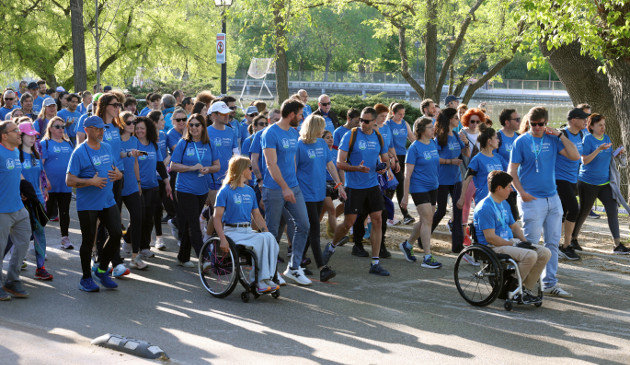Here, Lewis Harvey, Clinical Engagement Lead for Bupa UK and Global, shares his personal experience and offers some tips for people thinking of talking about their sexuality with those close to them.

Our sexual orientation is an important part of who we are. But, for people in the LGBT+ community it can sometimes feel difficult to share this with other people. Deciding whether or not to start these conversations is a very personal choice.
My story
Will my family and friends still speak to me? Will I be treated differently at work? Will my life be the same as it is right now?
These are but a few of the thoughts that were constantly on my mind for years before I decided to let people know that I’m gay. I can remember all of the emotions I felt when I told the first person in my life - my best friend. There was a huge sense of relief, followed by a sense of dread and uncertainty as to what the future might hold.
Advice for starting the conversation
I’ve thought a lot about the best advice I could give for discussing your sexuality with others. But, it was difficult to remember what it was like when nobody knew that I was gay. Instead, I’ve thought about what advice I would give to my younger self. I hope that if you’re currently struggling to discuss your sexuality with other people, these tips will help you.
- Speak to one person first
If you have any friends or family that are part of the LGBT+ community, consider telling them first. They’ve experienced something similar to what you’re going through and can probably offer some helpful advice. Saying these things aloud for the first time can be freeing, regardless of who you say them to. If there’s no one you know who you feel comfortable speaking to, try getting in touch with an organisation such as an LGBT+ charity (see below for some useful resources). - You’re in control of when and who you share this with
Only you should decide when you tell people something so personal to you. You might be asked questions about who you plan to tell next, or when you will tell somebody in particular. Don’t feel like you have to please other people. It’s important not to lose sight of why you shared this in the first place – to be happy in yourself. Focus on what’s important to you and only tell the people you want to. - People might say hurtful things, but they don’t mean to upset you
Over the years leading up to telling your family and friends, you might have noticed them making negative or hurtful remarks about LGBT+ people. Perhaps this happened when they saw two men kiss on TV, or when a same-sex couple were holding hands in public. Remember that they weren’t trying to make you feel less accepted. Lots of people just don’t know how to react to something that isn’t their version of ‘normal’. - Be prepared to have difficult and uncomfortable conversations
Sometimes you’ll probably have to have some difficult, and maybe even hurtful, conversations. Some of these might be conversations you need to have, but other ones you might be able to walk away from. Be patient with people, but also encourage them to educate themselves on LGBT+ issues.
You might hear phrases such as “I’d never have guessed” or “I’ve always known”. It can be difficult not to be hurt if people say something you find upsetting. You might find it helpful to explain to them why what they’ve said is offensive to you. This will help them see things from your perspective. - Finally, embrace who you are
It’s normal to worry about what the future holds once you fully embrace who you are. But, although I can’t actually speak to my younger self, I hope that if you’re struggling to have these conversations you find my advice helpful. Since discussing my sexuality with my friends and family, I’ve had some of the best years of my life so far.
If you are in a situation where you can’t discuss your sexuality for any reason, or these conversations haven’t gone as you’d hoped, try getting in touch with one of the organisations below for support.
Useful resources:
- Stonewall has a range of resources for LGBT+ people and their loved ones
- The LGBT Foundation offer help and advice



